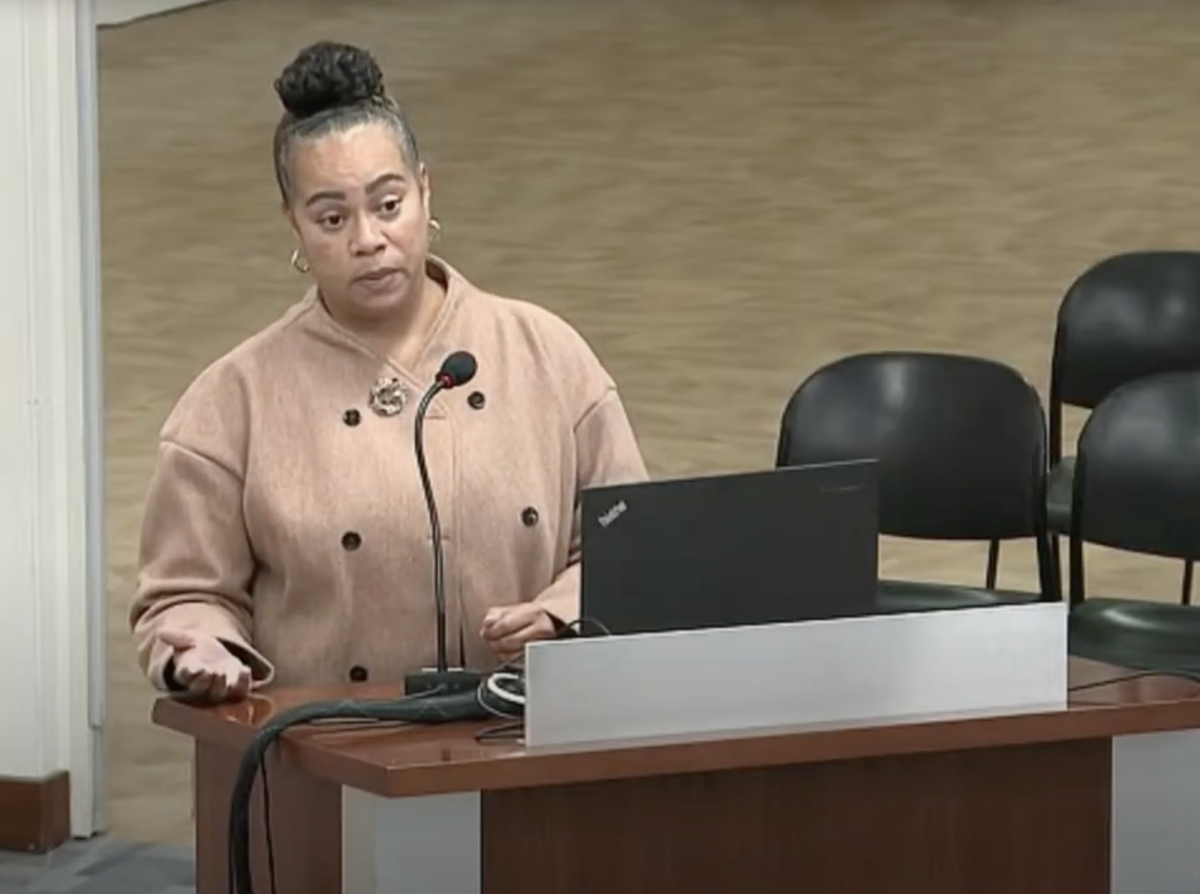Peralta Community College District (PCCD) officials have spent thousands of dollars on trips abroad while benefits to the district remain unclear, an investigation by The Citizen found.
Since pandemic travel restrictions were lifted in 2022, the district has spent over $87,600 on trips to recruit international students and to establish programs abroad. Meanwhile, the F-1 visa international student population has declined by 59.1% over the past five years.
The district has yet to create a process for conducting cost-benefit analyses when it comes to district spending on international travel, despite calls to evaluate the foreign recruitment program by an Alameda County Grand Jury investigation from 14 years ago.
Additionally, our review of recent edits to the district’s travel policy found a decrease in accountability for certain expenses while increasing the amount employees can spend on travel and still get reimbursed.
Documents provided to The Citizen show multiple examples in which travel expenses were over budget, unaccounted for, and/or appeared to be in violation of district policy. In the case of one trip, two district officials used PCCD funds to pay for flight upgrades, five-star luxury hotels, and one appeared to order room service.
To report on this story, The Citizen reviewed over 300 pages of receipts, expense reports, and board-approved travel requests for all international trips taken by district employees since pandemic-era travel restrictions were lifted in 2022.
We spoke to several current and former district leaders on the topic of international travel. All parties named in the story had the opportunity to comment on information relevant to them.
How the district funds international travel
Since 2022, PCCD has picked up the tab on about $87,640 worth of flights, food, transportation, hotels, conference fees, and other expenses for district officials while on international district business, according to travel expense reports reviewed by The Citizen.
Of the 15 trips taken, six resulted in expenses surpassing their district approved budgets. These overages ranged from about $600 to more than $1,800.
About $46,370 worth of trips were funded through the district’s unrestricted general fund, also known as Fund 01.
Fund 01 finances the overall operations of the district, from faculty pay and building maintenance to all travel by administrators on district business. It is primarily funded by taxpayer dollars, student tuition and fees, according to PCCD Budget Director, Dave Vigo.
The remaining $41,270 stemmed from the district’s contract education fund, also known as Fund 30.
Fund 30 stems from external streams of revenue generated by contract education agreements, by which private or public businesses purchase classes from PCCD. These funds can only be spent on contract education programs at PCCD, such as pay for teachers and administrators working on contract education programs or travel for contract education purposes.
Contract education programs at PCCD have recently come under scrutiny. In April, PCCD Chancellor Tammeil Gilkerson placed a hold on all contract education agreements following allegations of academic dishonesty within the American Straight A Academy (ASAA), a contract education partner at the time.
Gilkerson told The Citizen that her office and the Office of International Education (OIE) conducted an unofficial investigation into these claims, but their findings did not substantiate the allegations.
ASAA has purchased over $1 million in courses from the College of Alameda since Fall 2022.
In September 2023, Jannett Jackson and Diana Bajrami, then serving as Interim Chancellor of PCCD and Acting President of the College of Alameda respectively, took a seven-day trip to China to conduct a “site visit” of two ASAA educational centers at universities in Beijing and Hangzhou, China. International Student Support Specialist, Annie Liu, also went on the trip to provide “technical support” to ASAA and to attend a conference.
This group trip to China cost the district about $22,400 from Fund 30, according to travel receipts. Some of Bajrami and Jackson’s expenses appeared to violate the district’s travel policy. Both former officials declined to comment on their expenses.
The Citizen is currently working on a separate article about ASAA, which is set to publish later this year.
F-1 student recruitment trips produce unclear results
The number of F-1 visa holding students attending PCCD has declined by 59.1% since the Spring 2019 semester, from 807 students to 330, according to data provided to The Citizen by the OIE.
That exceeds the national 32.4% decline in the number of F-1 students pursuing associate’s degrees between the 2019-20 school year and the 2022-23 school year, the most recent year data is available from Open Doors.
F-1 visa students are non-U.S. citizens that come to the U.S. to pursue academic coursework full-time. They’re the “heart” of OIE’s programming, according to OIE Director Thomas Torres-Gil.
The OIE also oversees other types of international students, such as non-F-1 students categorized as international students for tuition purposes, and students in international contract education programs, like those enrolled at PCCD via ASAA.
According to Torres-Gil, the COVID-19 pandemic is one reason for the decline in international students. Other factors include “political concerns and global competition.” He cited an increase in denials of F-1 student visas that created barriers for international students coming into the U.S.
“Anecdotally, students are still seeking to learn English but are choosing the U.K., Canada, and Australia over the U.S.,” Torres-Gil stated in an email to The Citizen. “The reasons I’ve heard from the field include employment opportunities, visa denial rates, safety concerns, and costs.”
Some trips taken to recruit international students and/or establish contract education programs abroad did not yield the results the OIE expected, which Torres-Gil spoke openly about in a separate interview with The Citizen.
For example, trips to the United Kingdom and Germany had limited results while costing over $17,000 from Fund 30. Currently, there are three F-1 students from the UK and one from Germany.
Torres-Gil said his trip to the U.K. was cut short. He had planned to meet one of PCCD’s contract education partners at the time, Nanjing TJYX, to help them expand their program in China for transfer agreements with the UK. Nanjing pulled out of the trip at the last minute, Torres-Gil said, so he was unable to attend two university destinations and had to cut his trip short by two days.
The OIE director said the trip was “in part successful.”
“Part of our field is to explore relationships and partnerships,” Torres-Gil said. “And some of the best ways to do that is through formal or physical visits, where you're able to connect, meet, but also understand better the systems that you're trying to work with.”
A December 2023 recruitment trip to Sweden also yielded limited results, while costing about $3,880. The trip had a goal of recruiting 10 to 20 graduating high school students, according to Torres-Gil.
However, PCCD currently has zero Scandinavian F-1 students. According to Torres-Gil, the OIE had one Swedish applicant for the fall semester who ultimately withdrew "for unforeseen reasons," and has been in communication with another potential applicant who could apply for Spring 2025.
Kyana Gilani, the International Student Support Specialist who went on the trip to Sweden, declined multiple attempts for an interview with The Citizen.
Some trips, such as Gilani’s trips to Indonesia, Singapore, and Malaysia in 2023, were taken with the goal of exploring these markets and reporting back, according to Torres-Gil. According to OIE data, the district has five F-1 students from Indonesia, five from Singapore, and one from Malaysia as of Spring 2024.
A comparison of travel costs with international student data from OIE is below.
Torres-Gil said in the interview that the district must “invest” in foreign markets before seeing any results.
“There are ways that we'd have to invest into the program to make sure we get that return, as well as try to carve out a space in terms of our marketing materials trying to cater to the students themselves,” he said.
He stated that PCCD has a smaller travel budget in comparison to other colleges for international travel and recruitment, so the OIE must be tactical with which countries they visit. He mentioned that the office is seeking a “stronger presence” in Vietnam.
Torres-Gil emphasized that trips using Fund 30, which accounted for seven of the 15 trips taken, “are not public monies” and these expenses represent a small drop in the overall Fund 30 pond.
“These are monies generated through the hard work of our office and the college, from contract education to try to find these new spaces,” Torres-Gil said.
Referring to the money spent on conducting the ASAA site visits, which cost around $20,406 from Fund 30 and $4,429 from Fund 1, Torres-Gil said, “When you create an international program, or when you have one, you need to invest back into it.”
Changes to travel policy allowed for more spending on meals
While on travel for district business, PCCD officials are restricted in what they can spend district money on, and how much. They must adhere to the rules outlined in Administrative Procedure 7400 (AP 7400) from the start of organizing travel to requesting reimbursements post-travel.
Through the parameters of AP 7400, district employees are expected to be mindful of travel costs and must provide evidence of certain expenses.
For example, AP 7400 calls for employees traveling abroad to shop for cheaper flights and hotels in advance, ride the lowest possible airfare and cover the cost for any upgrades. Employees are also asked to maintain receipts for flights, hotels, trains, taxis, and rideshare services for reimbursement purposes.
In recent years, amendments to AP 7400 allowed for greater spending on meals and incidental expenses, such as wifi or laundry charges, with less oversight.
Previous versions of AP 7400 listed explicit daily maximums, also called per diem rates, that employees could be reimbursed for meals. The policy also required employees to maintain receipts on meals and incidentals over $25 as they do for other expenses.
In 2021, the daily maximum was $55 with explicit limits on breakfast, lunch, and dinner, and receipts were required. This version did not permit any reimbursements for incidentals. However, older versions of AP 7400 had allowed reimbursements for incidentals of up to $25 without a receipt.
By September of 2022, amendments to the policy replaced the district-set daily maximums for meals and incidentals with daily maximums set by the federal government, which vary by location but are typically higher. The new policy does not explicitly require receipts for meals or incidentals.
The recent amendments were brought to the board under the guidance of Jackson, PCCD’s former Interim Chancellor who left the district in December following Gilkerson’s appointment to the role.
Since the changes to the policy, the highest examples of reimbursements in accordance with the federal per diem rates include $178 per day for meals and incidentals in London for John Beam, Director of Athletics at Laney College, during a March 2023 trip.
In another example, Jackson and Bajrami, the former Acting President of the College of Alameda, received $138 per day in allowances for meals and incidentals during their ASAA site visit in September 2023 – totalling over $2,200 in meal reimbursements alone.
Bajrami and Jackson also did not adjust their per diem rates for meals when they were in Hangzhou, where the federal per diem rate is $124.
District pays for flight upgrades despite travel policy
The Citizen found multiple examples of travel taken by district administrators that surpassed their board approved travel budgets and appeared to circumvent AP 7400 rules when it came to flights, hotels, and ride shares.
One example includes Jackson and Bajrami’s ASAA trip, which had an approved budget of $12,440. The trip ultimately cost $14,516.94.
The pair booked premium economy seating on their flight to Beijing, which cost $3,549.65 per person roundtrip, according to the receipts. Expense reports show that they were reimbursed the full amount.
Cathay Airways, the airline that they flew with, offers three seating options on flights from San Francisco to Beijing: Economy, Premium Economy, and Business Class. According to Cathay Airways’ website, Premium Economy offers an “elevated” experience equipped with “spacious” seating and other perks.
The pair also upgraded their fare class to "Flex” fare, which offers more flexibility such as free flight changes and cancellations, according to Cathay Airways’ website.
The AP 7400 travel policy states, “Fares must be at the lowest possible rate, e.g., economy, coach, etc. Upgrades are not reimbursable. If an employee wishes to upgrade, it is done at the employee’s expense.”
The Citizen estimated the cost of the upgrades by analyzing Cathay Airways ticket prices for the same trip taken at the same dates in 2024.
Without the flight additions, the round trip cost with economy seating was about $1,280 per person, which cost roughly $2,200 less than flights with premium economy and flex fare upgrades.
Bajrami also claimed $100 for a “canceled flight” hand-written on her receipts without any further details of the expense.
Five star hotels and room service
Receipts show that Bajrami and Jackson stayed in a five-star hotel while appearing to exceed their maximum per diem allowances for lodging during their trip to China.
Bajrami and Jackson stayed four nights at the Four Seasons in Beijing, according to the receipts. The federal per diem rate for lodging in Beijing is $247. According to the U.S General Services Administration (GSA), that rate accounts for taxes.
“For foreign areas, lodging taxes have not been removed from the foreign per diem rates established by the Department of State,” the GSA website states. “Separate claims for lodging taxes incurred in foreign areas [are] not allowed.”
Bajrami’s receipts indicated that she stayed in the Premier Room with a Skyline view, which cost around $300 per night including taxes and fees, according to the receipts and expense reports.

Jackson’s receipts did not indicate which room she stayed in, but show that a total of $1,396.68 was charged on her district credit card to the Four Seasons. That averages to about $350 per day for the four nights she stayed.
A charge for "Room Service Dinner" is also apparent on Jackson's Four Seasons receipt.
"Employees may not use room service or a room mini-bar or snack bar," district travel policy states.
The ASAA trip faced some pushback from trustees at a July 11, 2023 board meeting, receiving dissenting votes from Trustees Paulina Gonzalez-Brito and Louis Quindlen.
Gonzalez-Brito, who uses they/them pronouns, voiced concerns about an outgoing chancellor attending a costly trip when Jackson would be leaving the district just a few months later. They suggested it could be more beneficial for the new chancellor to go on the trip, if the aims were to facilitate stronger relationships with the contract education partner long-term.
At the meeting, Jackson said it was simply a “timing issue.” While it would be appropriate for the new chancellor to attend the site visit, “now is the time to build relationships,” she said.
According to the officials’ travel requests, the timing of the trip was so that the officials could meet with students on their first day of school on Sep. 11.
The Citizen reached out to Bajrami and Jackson for questions regarding their travel expenses.
Bajrami stated that as a former international student herself, she believes the programs “provide invaluable access to higher education.”
“This travel request followed the policies and procedures identified in BP/AP 7400 and it did undergo several levels of scrutiny and approval at the college and district level culminating with Board Approval,” Bajrami stated.
Jackson declined an interview on the topic of the international student program in an email statement to The Citizen.
“As I am no longer associated with the district or involved in the future plans for this districtwide program, regrettably, I do not feel I am in a position to contribute to your article,” the former interim chancellor stated.
Past grand jury report highlights similar issues with travel expenses
It is not the first time PCCD’s travel spending has raised questions about oversight and tangible benefits to the district. A 2009-2010 Alameda County Grand Jury Report investigated similar issues, prompted by a citizen complaint alleging mismanagement of funds and “lavish” spending against former chancellor Elihu Harris.

The grand jury is an investigative body over local governments with watchdog capabilities to preserve the public interest and hold government offices accountable. The grand jury selects complaints each year that seem to have the highest stakes in the community to investigate and make recommendations for the future based on their findings.
“One of the paramount responsibilities entrusted to the board and the chancellor is to oversee and preserve the fiscal integrity of the district,” the report stated.
The grand jury found that oversight of receipts and reimbursements for travel were “especially lax,” with reimbursements being administered back to district employees without explanation or sufficient receipts. There were also evident issues with receipts that could not be deciphered between business necessities or purely personal use and failure to reimburse the district on such expenses.
“A cap must be set by the district on food and entertainment expenses,” the grand jury noted. “These expenses should be presented in open board meetings and be available for public view.”
The report also called for PCCD to re-evaluate its foreign student recruitment program. “Although it is the district’s position that the foreign recruitment program benefits the students, the international student program appears to be primarily a money making venture,” the document reads.
The grand jury explained it came to this conclusion from the lack of procedures to determine the effectiveness of foreign programs based on the actual enrollment and performance of these students.
“There needs to be greater transparency on how foreign recruitment funds are accounted for; if the allegations of great profit by the district are factually correct; and if the cost of sending multiple employees on foreign trips is the best value for taxpayers in terms of time, effort, and money,” according to the report.
Ultimately, the grand jury recommended that PCCD re-evaluate and enforce its policies regarding food and travel expenses, that the board justify and restrict the travels made, and that the board of trustees and the chancellor write post-trip reports reviewing the cost and benefits to the district.
Current chancellor reflects on the future of international programs
Jackson, who served as interim chancellor when these trips were taken, declined an interview with The Citizen. She suggested that we speak with Gilkerson, who stepped in as chancellor on Jan. 4, 2024.
In our interview, Gilkerson declined to comment specifically on the trips taken during Jackson’s tenure.
“I think we are stewards of the public trust and have a responsibility to do district business and be [...] thoughtful about the way we spend resources,” Gilkerson said. “That's the stance I take, generally, but I'm not going to speak for other folks and the decisions that were made or approved before I got here.”
When asked if there were any current cost-benefit analysis measures in place to gauge students and programs stemming from paid trips by the district, Gilkerson said she was not aware of any.
Gilkerson said she is unsure when the right time will be to reopen the district’s contract education programs.
She told The Citizen she paused the programs “so that we could maintain our focus on serving our resident students and our international students that are here in person at this time.”
“I highly support international education,” the chancellor added. “I think it adds to the diversity of perspectives in our classrooms [...] I think it elevates all of us.”



























